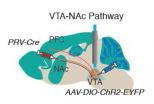(Press-News.org) BOSTON--When people with a family history of colorectal cancer develop the disease, their tumors often carry a molecular sign that the cancer could be life-threatening and may require aggressive treatment, Dana-Farber Cancer Institute scientists report in a new study.
The finding, reported in the Journal of the National Cancer Institute, draws on data from studies that have tracked the health of tens of thousands of people over several decades. It suggests that colorectal cancer patients could one day have their tumor tissue tested for the molecular sign, and, if necessary, receive more powerful therapies and a familial cancer-risk assessment for their relatives. It further suggests that such patients' relatives could be eligible for more frequent colonoscopies to catch the disease at the earliest possible stage.
Unlike other abnormalities that raise the risk of colon cancer in some families, the newly discovered sign is not linked to a gene mutation that can be inherited from one's parents or grandparents. It appears in DNA segments that are thought to have entered the human genome millennia ago, possibly through infection by retroviruses. These sections, known as long interspersed nucleotide element 1 (LINE-1), are sprinkled throughout the human genome and make up about 17 percent of our DNA. Normally, LINE-1 doesn't cause much trouble, because it's blanketed by methyl groups (packets of one carbon atom bound to three hydrogen atoms).
In the current study, researchers led by Dana-Farber's Shuji Ogino, MD, PhD, MS, and Charles Fuchs, MD, MPH, found that for many colorectal cancer patients with a family history of the disease, the LINE-1 in their tumor cells was nearly bare of methyl groups (a condition known as hypomethylation).
"Previous studies have suggested that some colorectal cancers exhibit an instability of the epigenome, the cell's system for controlling when genes are active," says Ogino, the paper's first author. "One of the signs of this deficiency, it was proposed, is hypomethylation of LINE-1. We wanted to find whether a family history of colorectal cancer creates a higher risk of such hypomethylation."
Fuchs is the paper's senior author.
In contrast to a small, previous study, which suggested that LINE-1 hypomethylated colorectal cancers cluster in certain families, the new study took a large-scale "prospective" approach to gain more definitive insights. Investigators used data from the Nurses' Health Study and the Health Professionals Follow-up Study -- which follow the health of tens of thousands of people for decades -- to see if participants who had a family history of colorectal cancer tended to develop colorectal cancer with low-level methylation of LINE-1.
"We found that, compared to individuals without a family history of colorectal cancer, people who had first-degree relatives affected with the disease indeed had a higher risk of developing colorectal cancer with hypomethylated LINE-1," Ogino says. "Because this variety of colorectal cancer can quickly become dangerous, testing colorectal cancer patients for tumor LINE-1 hypomethylation may offer a valuable way of identifying those in greatest need of aggressive treatment. Such testing could also help identify patients whose relatives may be at increased risk for the aggressive form of the disease. Further study is needed to determine how this type of testing can be used in a clinical setting."
INFORMATION:
In addition to Ogino and Fuchs, the paper's co-authors are Reiko Nishihara, PhD, Paul Lochhead, MBChB, MRCP, Yu Imamura, MD, PhD, Aya Kuchiba, PhD, Teppei Morikawa, MD, PhD, Mai Yamauchi, PhD, Xiaoyun Liao, MD, PhD, Zhi Rong Qian, MD, PhD, Ruifang Sun, MB, Kaori Sato, MS, and Jeffrey Meyerhardt, MD, MPH, of Dana-Farber; Molin Wang, PhD, Donna Spiegelman, ScD, Eva S. Schernhammer, MD, DrPH, and Edward Giovannucci, MD, ScD, of the Harvard School of Public Health and BWH; Andrew T. Chan, MD, MPH, of BWH and Massachusetts General Hospital; and Gregory J. Kirkner, MPH, of BWH.
The study was funded in part by the National Institutes of Health (P01 CA87969, P01 CA55075, P50 CA127003, R01 CA151993, and R01 CA137178), the Bennett Family Fund for Targeted Therapies Research, and the National Colorectal Cancer Research Alliance.
Dana-Farber Cancer Institute is a principal teaching affiliate of the Harvard Medical School and is among the leading cancer research and care centers in the United States. It is a founding member of the Dana-Farber/Harvard Cancer Center (DF/HCC), designated a comprehensive cancer center by the National Cancer Institute. It provides adult care with Brigham and Women's Hospital as Dana-Farber/Brigham and Women's Cancer Center, and it provides pediatric care with Boston Children's Hospital as Dana-Farber/Children's Hospital Cancer Center. Dana-Farber is the top-ranked cancer center in New England, according to U.S. News & World Report, and one of the largest recipients among independent hospitals of National Cancer Institute and National Institutes of Health grant funding. Follow Dana-Farber on Twitter: @dana-farber or Facebook: facebook.com/danafarbercancerinstitute.
Patients with family history of colorectal cancer may be at risk for aggressive form of the disease
2012-12-13
ELSE PRESS RELEASES FROM THIS DATE:
Targeted micro-bubbles detect artery inflammation, MU study finds
2012-12-13
COLUMBIA, Mo. — Heart disease is a leading cause of death throughout the world. Doctors say that it is important to detect heart disease early before it becomes too serious. Now, researchers at the University of Missouri have found a way that they believe could help detect heart disease before it progresses too far as well as identify patients who are at risk for strokes.
In a study published in Medicine and Science in Sports and Exercise, Isabelle Masseau, an assistant teaching professor in the MU College of Veterinary Medicine, found that she could use targeted micro-bubbles ...
Delaying childbirth may reduce risk of an aggressive form of breast cancer
2012-12-13
SEATTLE – Younger women who wait at least 15 years after their first menstrual period to give birth to their first child may reduce their risk of an aggressive form of breast cancer by up to 60 percent, according to a Fred Hutchinson Cancer Research Center study. The findings, by Christopher I. Li, M.D., Ph.D., a member of the Public Health Sciences Division at Fred Hutch, are published online in Breast Cancer Research and Treatment.
"We found that the interval between menarche and age at first live birth is inversely associated with the risk of triple-negative breast ...
Hubble census finds galaxies at redshifts 9 to 12
2012-12-13
Astronomers using the NASA/ESA Hubble Space Telescope have uncovered seven primitive galaxies from a distant population that formed more than 13 billion years ago. In the process, their observations have put forward a candidate for the record for the most distant galaxy found to date (at redshift 11.9), and have shed new light on the earliest years of cosmic history. The galaxies are seen as they were when the Universe was less than 4 percent of its present age.
A team of scientists using the Hubble Space Telescope has made new observations of the Hubble Ultra Deep Field ...
Notre Dame research may have important implications for combating diabetes
2012-12-13
Research by University of Notre Dame biochemist Anthony S. Serianni is providing new insights that could have important implications for understanding and treating diabetes.
Serianni points out that biological compounds known as dicarbonyl sugars are produced inside the human body from the natural breakdown of the simple sugar, glucose. The formation of these sugars is enhanced in diabetic patients because glucose concentrations in the blood and plasma of diabetics are significantly elevated.
"We investigated, under laboratory conditions that approximate those in the ...
Too big or just right? Optimal circle of friends depends on socioeconomic conditions
2012-12-13
Some people like to have a few close friends, while others prefer a wider social circle that is perhaps less deep. These preferences reflect people's personalities and individual circumstances — but is one approach to social networks "better" than the other? New research suggests that the optimal social networking strategy depends on socioeconomic conditions.
Researchers Shigehiro Oishi of the University of Virginia and Selin Kesebir of the London Business School explore the benefits of social networking strategies in two studies published in Psychological Science, a ...
Caltech-led astronomers discover galaxies near cosmic dawn
2012-12-13
PASADENA, Calif.—A team of astronomers led by the California Institute of Technology (Caltech) has used NASA's Hubble Space Telescope to discover seven of the most primitive and distant galaxies ever seen.
One of the galaxies, the astronomers say, might be the all-time record holder—the galaxy as observed existed when the universe was merely 380 million years old. All of the newly discovered galaxies formed more than 13 billion years ago, when the universe was just about 4 percent of its present age, a period astronomers call the "cosmic dawn," when the first galaxies ...
NASA'S Hubble provides first census of galaxies near cosmic dawn
2012-12-13
WASHINGTON -- Using NASA's Hubble Space Telescope, astronomers have uncovered a previously unseen population of seven primitive galaxies that formed more than 13 billion years ago, when the universe was less than 4 percent of its present age. The deepest images to date from Hubble yield the first statistically robust sample of galaxies that tells how abundant they were close to the era when galaxies first formed.
The results are from an ambitious Hubble survey of an intensively studied patch of sky known as the Ultra Deep Field (UDF). In the 2012 campaign, called UDF12, ...
Building better barley
2012-12-13
As one of the top 10 barley producers in the world, Canada faces a problem of adapting to the 'new normal' of a warmer, drier climate.
The 2012 growing season was considered an average year on the Canadian Prairies, "but we still had a summer water deficit, and it is that type of condition we are trying to work with," said Scott Chang, a professor of soil science in the University of Alberta's Department of Renewable Resources in Edmonton, Canada.
Chang teamed with fellow crop scientist Anthony Anyia of Alberta Innovates – Technology Futures in 2006, following a severe ...
Mercyhurst University study probes impact of climate change on ectotherms
2012-12-13
A new study by biologists at Mercyhurst University focuses on the influence of climate change, particularly warmer winters, on the survival and potential fecundity of cold-blooded animals.
Cold blooded animals, or ectotherms, do not have an internal mechanism for regulating body temperature. Instead, they rely on solar energy captured by the environment.
The purpose of the Mercyhurst study, a collaboration of Michael Elnitsky, Ph.D., assistant professor of biology; and students Drew Spacht and Seth Pezar, is to assess the current and future impacts of climate change ...
Stress-resilience/susceptibility traced to neurons in reward circuit
2012-12-13
A specific pattern of neuronal firing in a brain reward circuit instantly rendered mice vulnerable to depression-like behavior induced by acute severe stress, a study supported by the National Institutes of Health has found. When researchers used a high-tech method to mimic the pattern, previously resilient mice instantly succumbed to a depression-like syndrome of social withdrawal and reduced pleasure-seeking – they avoided other animals and lost their sweet tooth. When the firing pattern was inhibited in vulnerable mice, they instantly became resilient.
"For the first ...




